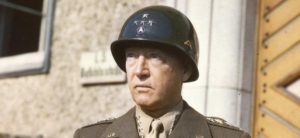Mykola Molodyko, 17 September 2017
For much of the 20th century, and especially after the end of World War II and the emergence of the Cold War, an ideological clash existed between Russia and the West. In fact, the Cold War itself was the culmination of and a sustainable period for this clash of ideologies. Fast forward to our situation today and answer this, why if it is fashionable in certain quarters to say we are in Cold War 2.0 or on the brink of it, do we leave out this important principle? How did the clash of ideologies disappear? That’s some magic hat trick. What is the utility of ignoring this paramount issue and who is benefiting from it? Has Russia hijacked diplomacy? Editor for The Economist magazine, Edward Lucas claims he is responsible for years ago identifying “a new Cold War,” yet somehow in his hyper-prolific professional life, he never mentions the fundamental principle of a clash of ideologies between the West and the Russian Federation as a highly important foreign policy consideration for the West.
Without any principles around which to organize the hostility, the clash between Russia and the West has the character of an argument between reality TV show “frenemies”; self-justifying, illogical, ad hominem; farcical, really. We as “viewers” are at liberty to agree with either side of the “argument.” The blurring of perception and reality is distorted to a degree that makes it almost untouchable to good intellectual discussion and prey to accusations of Russian hysteria, McCarthyism, and conspiracy theories. It’s has the foreign policy maturity of a kid sticking his fingers in his ears and shouting, “la-la-la-la-la-la-la,” as Russia’s imperialistic and anti-Western worldview is broadcasted from the television. For instance, experts can analyze and debate the “Gerasimov doctrine” as if it is a fair representation of how the world is supposed to work. Yet, even the most scholarly of scholars seems totally unprepared to diagnose and treat the disease: Russia versus the West is clash of ideologies; more pragmatically, a clash of values.
Instead of looking to Russia for a doctrine we need to ourselves clearly spell out the facts of Russia’s military, diplomatic, legislative mandates and its foreign policy. All of which are driven by a worldview that is totally foreign to our own. A reality that is far different from our reality TV perspective of Russia.
First, establish that the border between Ukraine and Russia is a demarcation line of the clash of values between the West and Russia. Evidence brings us knowledge that Russian Federation is best seen as anti-civilization, an antipode of all things progressive and cultural, so when Ukraine’s president says “Ukraine is a part of united Europe, from Lisbon to Kharkiv, and we share common values,” he’s talking to the world and saying, listen folks, we know part and parcel of Russian hybrid warfare and terrorism is driven by its foreign policy and anti-Western values. Perhaps Ukraine’s government needs to go a step further and proclaim in a doctrine that given the facts, it’s impossible not to acknowledge the dichotomy between the West and Russia?
The clash of values between Russia and the West is a deviance that describes the actions or behaviors that violate our healthy social norms here in the West. Not theirs. Leninism, Stalinism, Putinism, are all the same, in this respect; the promotion of their deviant behavior which violates our healthy social norms. The Russian leaders may have changed, but domestic and foreign policy did not. President Poroshenko not only understands this, he champions it: Recently, he declared, “today, we are once again fulfilling our millennial mission of defending our common European home from threats from the East.”
Let’s look at Russia. “There is no better example of the difference between Russian and Western values than the pathological lying that Moscow has engaged in over the Ukraine crisis.” The article linked here provides this Russian perspective. I encourage you to read it. The truth is in plain sight not just here but in all Russian self-promotion. They not only give us the clues, they serve the evidence on a silver platter. We in the U.S. and in some degree still in Ukraine, for whatever reason, chose to ignore it. Is it an issue of authenticity, denial, or context? I think the key here is to remember that Russia is not deviating from our social norms in the West; Russia has a totally different ideology. There’s a massive difference, my dear friends. It’s a clash of both values and norms.
A year ago, my colleagues and I published a policy paper where we staked out this issue. In fact, human values do separate Ukraine along with the rest of Europe, U.S., and the West from Russia. It is really the most polite way to describe the difference between Ukraine and Russia, a clash of norms and values. However, most people are totally unequipped to understand this idea. It really may be shocking to some.
 Distinguished U.S. General George S. Patton understood our clash of values with Russia and conveyed it on 8 August 1945, sounding pretty inappropriate to our modern ears:
Distinguished U.S. General George S. Patton understood our clash of values with Russia and conveyed it on 8 August 1945, sounding pretty inappropriate to our modern ears:
“The difficulty in understanding the Russian is that we do not take cognizance of the fact that he is not a European, but an Asiatic, and therefore thinks deviously. We can no more understand a Russian than a Chinaman or a Japanese, and from what I have seen of them, I have no particular desire to understand them, except to ascertain how much lead or iron it takes to kill them. In addition to his other Asiatic characteristics, the Russian have no regard for human life and is an all out son of bitch, barbarian, and chronic drunk.”
Consider this. As the research of our Maidan Monitoring Information Center indicates and our chair Natalia Zubar astutely says, “Russia never ended the Cold War.” Other countries did, but Russia did not. There are a few solid theories about the stasis. One is that a political-criminal nexus emerged in the post-Soviet period in Russia as Roy Godson describes in “Menace to society: Political-criminal collaboration around the world.” Insufficient attention was paid to the containment of the political-criminal nexus in both Russia and Ukraine. Most Western politicians and international organizations focused on the alleged collapse of communism rather than the rise of these pernicious alternative power relationships. Nearly two decades ago, Godson predicted that the political-criminal nexus in Russia and Ukraine would remain a serious problem in coming decades. Clearly, he wasn’t wrong. Thus, a clash of values and norms is also the most polite explanation for this brand of Russian terrorism as Godson describes. Ukraine and the rest of the West value democracy, human rights and the rule of law. Russia values authoritarianism and contempt for the individual and the law.
As to the current ideology of the Russian Federation, there are several good similar theories. I like one used by David Batashvili which aligns with the notion that Russia hijacked the 747 carrying diplomacy. More specifically, Russia has weaponized the work of Samuel Huntington’s 1993 article The Clash of Civilizations. Here in the West, Russia sees its purpose as subversion and exertion of influence abroad through ideology. Since the Bolshevik coup d’état in the fall of 1917, Russians had relied on ideology as a vital instrument of foreign policy. They lost this capability when communism kicked the bucket. Apparently, they missed this jam so much that they decided to replace communism with something else. Bastashivili reiterates that Putin’s regime is not based on any ideology, but classical kleptocracy. Distorted elements of a civilizational worldview are used pragmatically to exploit the West’s malaise and connect with the Western anti-establishment forces in the hope that they will prevent effective Western resistance to Kremlin’s geopolitical ambitions. Russia lays down the smokescreen of the clash of civilizations to cover its project of empire-building.
Earlier this year, Russian President Vladimir Putin used his annual state of the union address to defend his hawkish foreign policy and blame the West for thrusting Russia into a geopolitical conflict that’s only gotten worse since the Kremlin annexed Crimea. He blamed the West for attempting to sabotage his country’s economy and force the country to its knees — all while failing to mention that Moscow’s own aggressive posturing was a catalyst for the current crisis. That kind of “blame the victim” rhetoric is a common one for the Kremlin. “Blame the West.” The clash of norms and values is front and center.
It should be no surprise that pathological lying and “blame the victim” comprise Russia’s foreign policy. For foreign policy makers the issue of a clash of norms and values remains mysterious to many. But, most people, even some Ukrainians, cannot accept that Russia conceals a legacy of terrorism that is very much alive today. Personally, I prefer to focus on my fellow Ukrainians who have not come to terms here. This is a conversation I first encourage other Ukrainians to have. The farther away from the contact line, the less smooth the discussion may be had. Those in Kharkiv, near the Russian boarder, have pure evidence, while other Ukrainians in Chicago may still be fooled by centuries of Russian self-promotion. Our media is tainted with promotion of Putin’s policy of terrorism and transnational crime (“Putin policy promotion”). If you are securely cognizant of it, you see it. Otherwise you perceive it as the “news.” An extension of the Soviet methods and state-sponsored terrorism used during the Cold War with a highly dense and elaborate public relations and marketing component. Traditional methods of delivery are used, think tanks, lobbying, Madison Avenue, mass media and social media. Channels of communication are weaponized and used for terrorism.
Changes in perception take time. This process is sometimes a passive and gradual change, but it could also just as easily be a more abrupt transformation – driven by external events that are beyond one’s control. For me personally, it was the latter. I can specifically pinpoint the period in time. I had some pretty dramatic lucid thoughts and my awareness was illuminated during the Sochi 2014 Winter Olympics.
Recall now how this chapter in Ukraine’s history began. Tens of thousands of Ukrainian citizens from all parts of society demanded, in overwhelmingly peaceful demonstrations, an association agreement with the European Union. The peaceful protests at Maidan square in Kyiv and throughout the country was not a vanity fair; for several months, in the freezing cold of the winter. Then, 100 Ukrainian heroes were brutally murdered, probably by Russian forces. Memory eternal for all of courageous, all of the heroes. EuroMaidan, the Heavenly Hundred, the annexation of Crimea and occupation Donbas and the fighting there that has killed thousands of Ukrainian military and volunteer heroes jolted the country out of false perceptions. For Ukrainians, there is no better evidence than this of the clash of norms and values with Russia.
What evidence do you personally need? As a chaser, I invite you now to read this speech from Ukrainian thought leader Volodymyr Horbulin who currently serves as advisor to President Poroshenko. He speaks of our “shattered illusions.” I think this quite well describes the change in perception; a keen awareness many Ukrainians have they themselves acquired.







